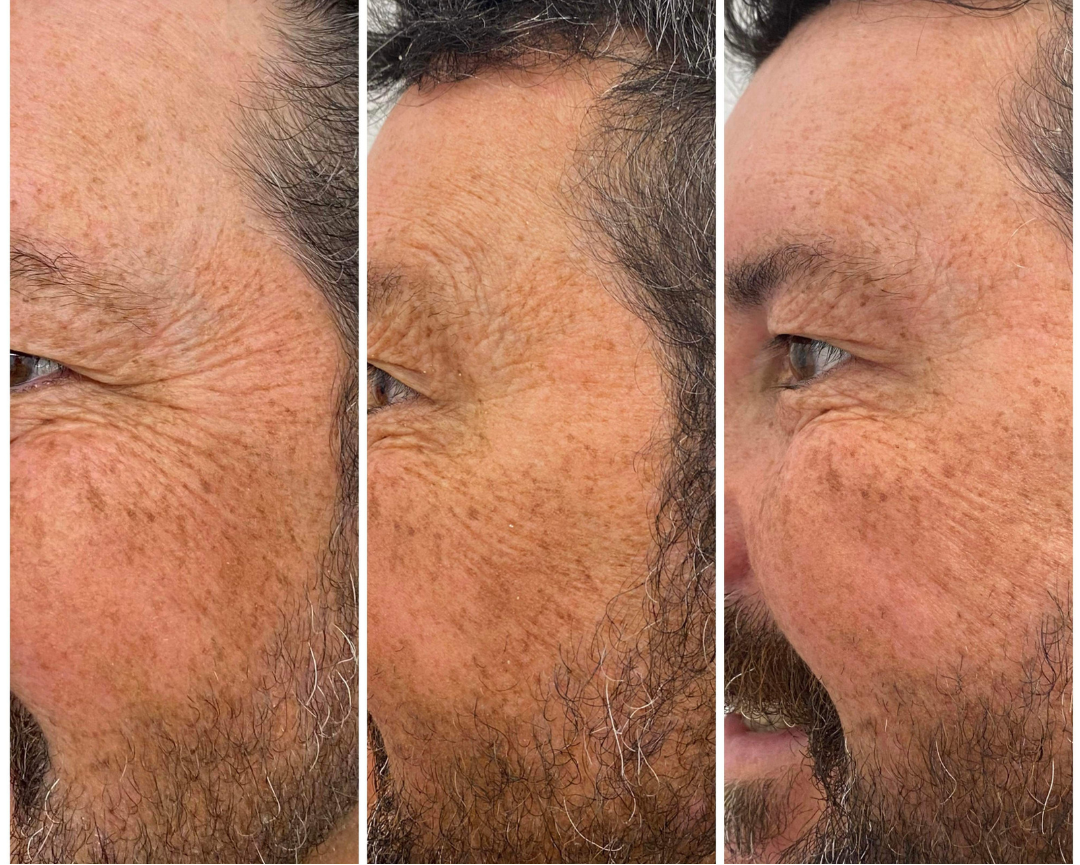Blog Layout
Are Anti-Wrinkle Injections the Same as Botox?
Refine Cosmetic • April 30, 2024
Are Anti-Wrinkle Injections the Same as Botox?
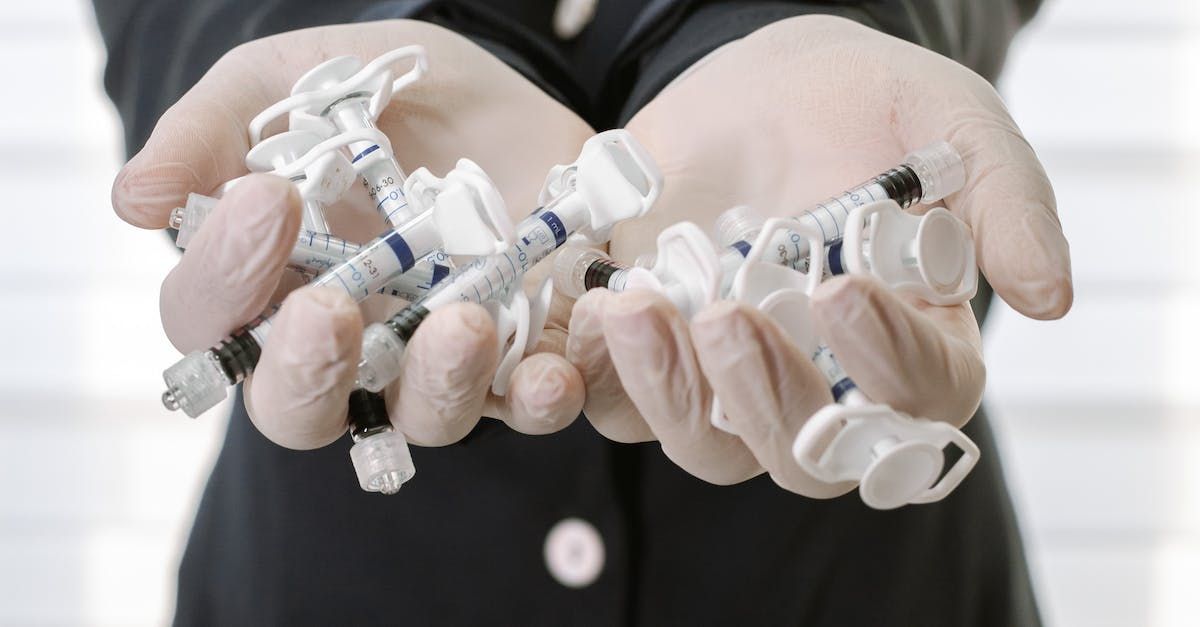
Botox is approved in over 78 countries for medical and cosmetic uses. It is commonly used to reduce wrinkles and can also treat conditions like migraines and excessive sweating.
When comparing anti-wrinkle injections and Botox, remember that Botox is a specific brand that uses botulinum toxin, while other injections may use different substances. Both treatments are effective but results may vary based on individual factors.
Consider the price when choosing between treatments. Botox may be more expensive due to its brand, but prices can vary depending on the provider and treatment areas.
When choosing anti-ageing treatments, think about your skin type, desired results, and lifestyle habits. Anti-wrinkle injections and Botox are quick and non-invasive options for reducing wrinkles.
At Refine Cosmetic our team is dedicated to helping you achieve your aesthetic goals. We offer thorough consultations to create a personalised treatment plan and ensure you get the best results for your needs.
Book a consultation today with our Nurse, Kelly, and refine the skin you're in!
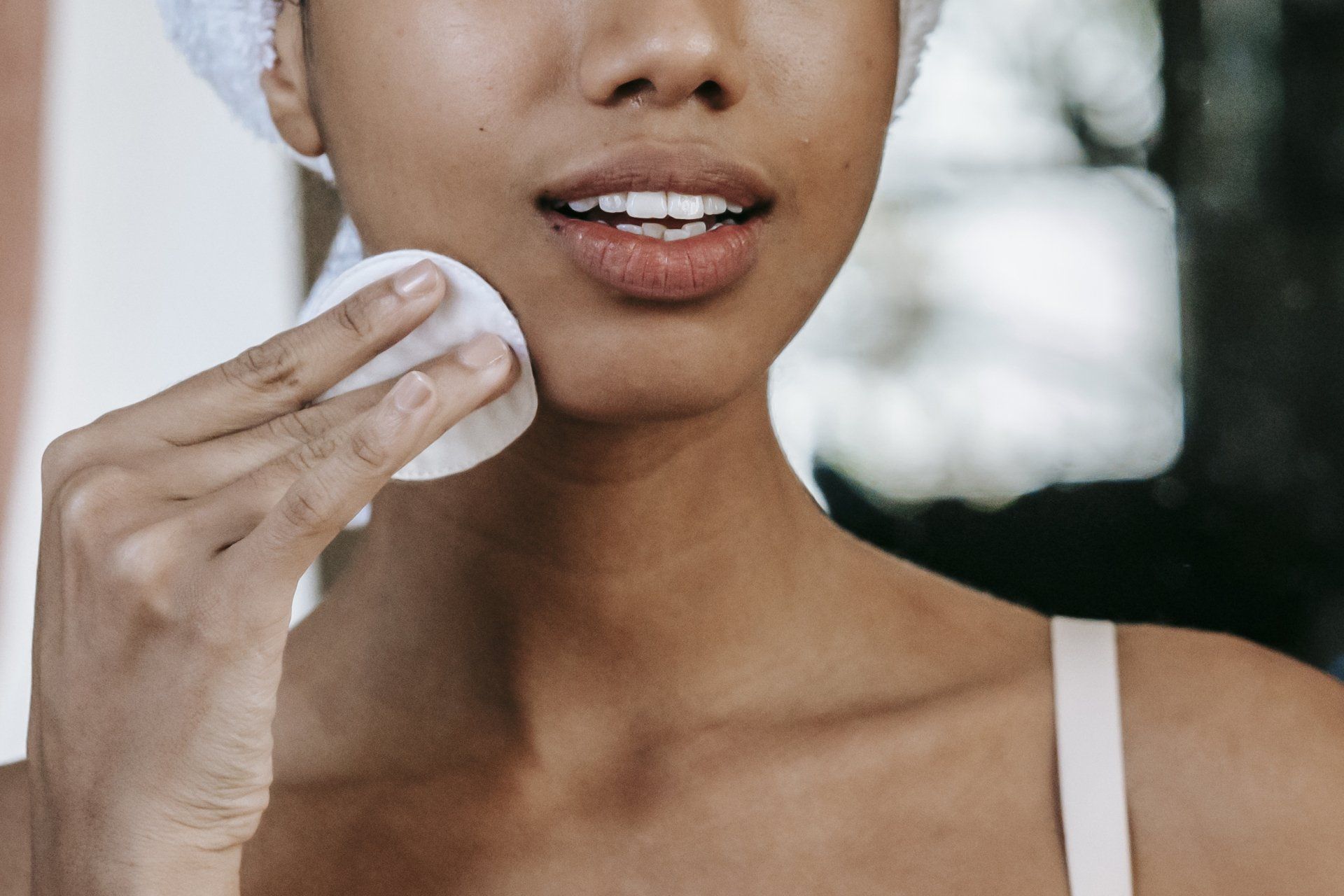
By Refine Cosmetic
•
May 13, 2024
If you're looking to achieve the best skin in Sydney, look no further than Refine Cosmetic. With their top-notch skin rejuvenation treatments, including anti-wrinkle injections and hydrating skin boosters, you can love your skin and boost your confidence. Refine Cosmetic is known for their expertise in delivering natural-looking results that enhance your natural beauty. Their team of experienced professionals will work with you to create a personalised treatment plan that addresses your specific skin concerns and goals. Anti-wrinkle injections are a popular treatment option for reducing the appearance of wrinkles and fine lines. By targeting specific muscles in the face, these injections can help smooth out wrinkles and give you a more youthful appearance. The results are temporary, lasting around 3-4 months, but with regular treatments, you can maintain a smooth and youthful complexion. In addition to anti-wrinkle injections, Refine Cosmetic also offers hydrating skin boosters. These treatments are designed to hydrate and rejuvenate the skin from within, leaving you with a radiant and glowing complexion. Whether you have dry or dehydrated skin, these boosters can help improve the overall texture and appearance of your skin. When you choose Refine Cosmetic for your skin rejuvenation treatments, you can trust that you are in good hands. Their team is dedicated to providing high-quality care and ensuring that you achieve the best results possible. So why wait? Love your skin and boost your confidence with Refine Cosmetics' skin rejuvenation treatments in Sydney.
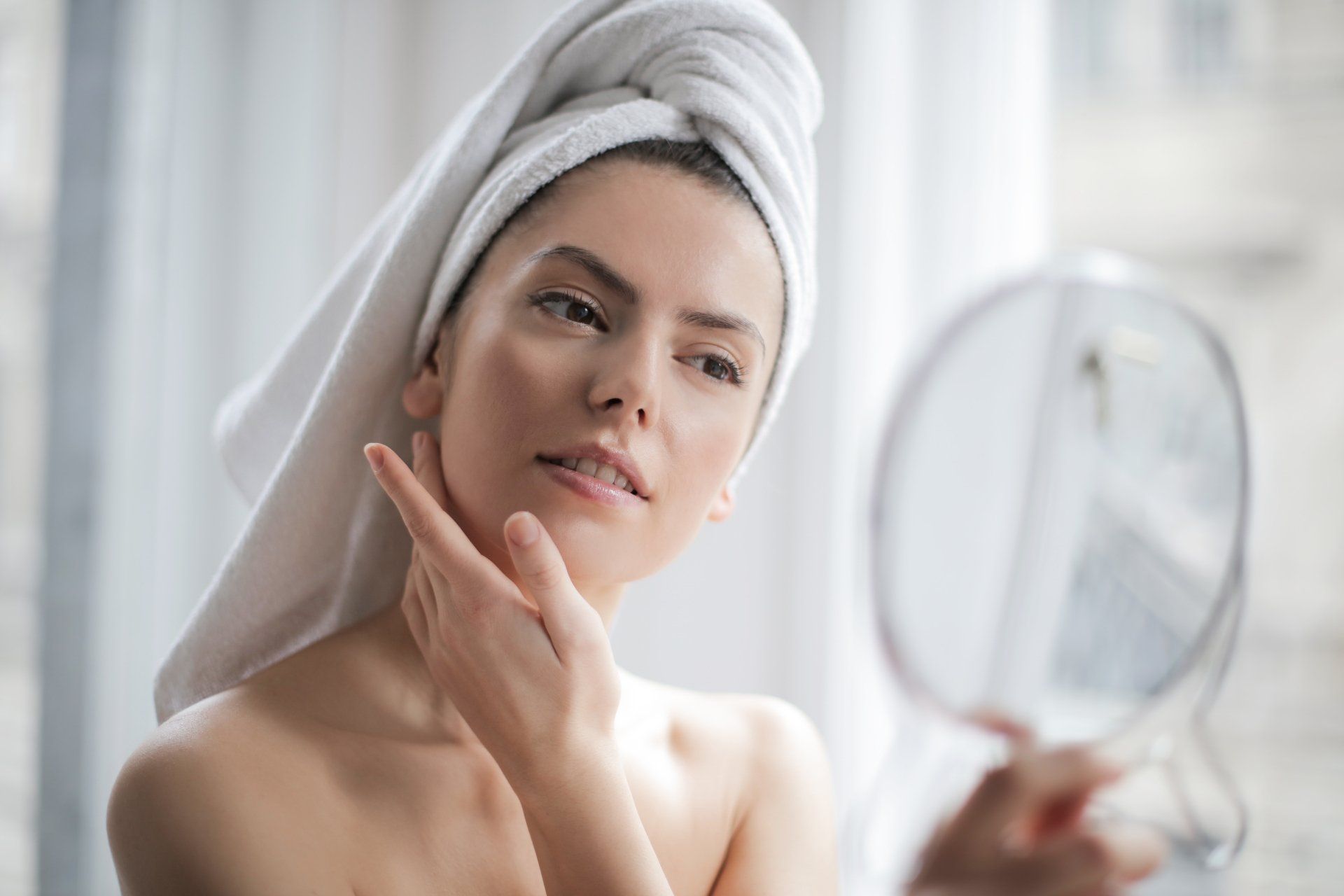
By Refine Cosmetic
•
May 13, 2024
As we age, our skin goes through a number of changes that can lead to it breaking down and becoming more wrinkly. There are several factors that contribute to this process, but there are also ways to slow down the effects of aging on our skin. Here are the main reasons that our skin breaks down and becomes more wrinkly with old age, along with 10 tips to keep it looking younger for longer. One of the main reasons that our skin breaks down with age is the natural decrease in collagen and elastin production. Collagen and elastin are proteins that help keep our skin firm and elastic, but as we age, our bodies produce less of these proteins, leading to sagging and wrinkling of the skin. Additionally, exposure to UV rays from the sun can damage collagen and elastin fibers, further contributing to the breakdown of the skin. Another factor that can contribute to the breakdown of our skin with age is the loss of moisture. As we get older, our skin tends to become drier, which can lead to a loss of elasticity and the formation of wrinkles. Hormonal changes, medications, and lifestyle factors such as smoking and poor diet can also play a role in the aging of our skin. To help slow down the effects of aging on our skin, here are 10 tips to keep it looking younger for longer: 1. Protect your skin from the sun by wearing sunscreen every day. 2. Moisturise your skin regularly to keep it hydrated and supple. 3. Eat a healthy diet rich in antioxidants, vitamins, and minerals to support skin health. 4. Avoid smoking and limit alcohol consumption, as these habits can accelerate the aging process. 5. Get enough sleep to allow your skin to repair and regenerate. 6. Stay hydrated by drinking plenty of water throughout the day. 7. Use products with retinoids or peptides to help stimulate collagen production. 8. Practice good skincare habits, such as cleansing and exfoliating regularly. 9. Exercise regularly to improve circulation and keep your skin looking healthy. 10. Consider getting professional treatments, such as facials or chemical peels, to help rejuvenate your skin. By following these tips and taking care of your skin, you can help slow down the effects of aging and keep it looking younger for longer. Remember that everyone's skin is different, so it may take some trial and error to find the right routine that works for you. It's never too late to start taking care of your skin, so start incorporating these tips into your daily routine to maintain a youthful and radiant complexion for years to come.
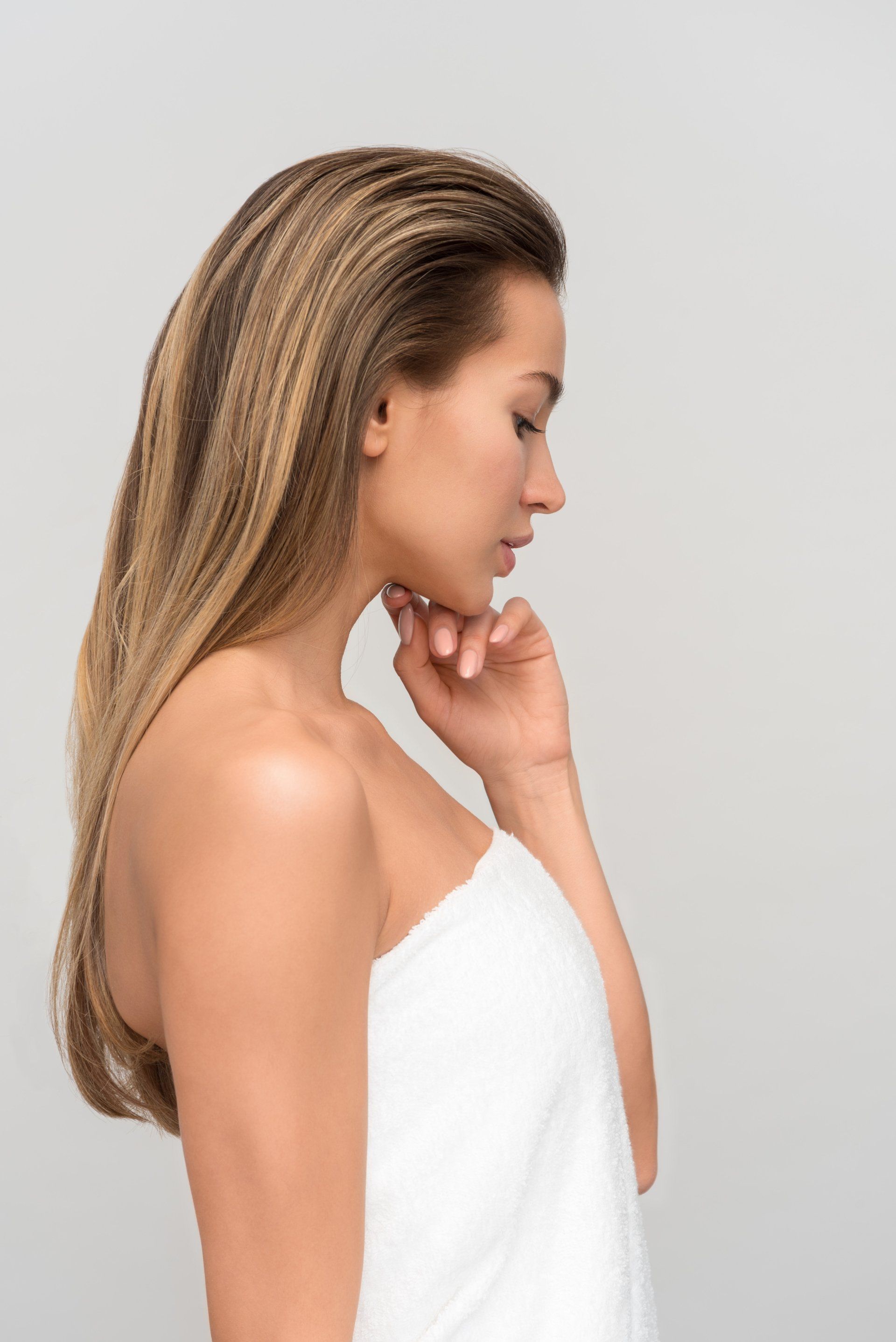
By Refine Cosmetic
•
April 23, 2024
In the ever-evolving world of skincare treatments, there seems to be a new product or procedure hitting the market every day. Two popular options that have been gaining traction in recent years are skin hydrating booster injections and anti-wrinkle injections. While both treatments aim to enhance the appearance of the skin, they work in different ways and produce distinct results. Let's delve into the details of each to see how they compare. Skin Hydrating Booster Injections: Skin hydrating boosters are injectable treatments that aim to hydrate and plump the skin. These typically contain hyaluronic acid, a substance that is naturally found in the skin and helps to retain moisture. When injected into the skin, hyaluronic acid binds to water molecules, leading to increased hydration and improved skin tone and texture. One of the primary benefits of skin hydrating boosters is their ability to provide immediate and noticeable results. Patients often report that their skin looks smoother, firmer, and more radiant following treatment. Additionally, these can help to reduce the appearance of fine lines and wrinkles, giving the skin a more youthful appearance. Anti-Wrinkle Treatments: Anti-wrinkle injections, commonly referred to as Botox, work by temporarily paralysing the facial muscles that cause wrinkles. By inhibiting muscle movement in targeted areas, this can smooth out fine lines and wrinkles and prevent new wrinkles from forming. This results in a more youthful and rejuvenated appearance. Unlike skin hydrating boosters, the effects of this type of treatment is not immediate. It typically takes a few days to see the full results, and the effects can last for three to six months. With repeated treatments, patients can maintain smoother, more youthful-looking skin in the long term. Comparison: When comparing skin hydrating boosters to anti-wrinkle (Botox) injections, it's important to consider your specific skincare concerns and treatment goals. Skin hydrating boosters are ideal for individuals looking to improve skin hydration, texture, and tone, while anti-wrinkle treatmentss are best suited for those seeking to reduce the appearance of fine lines and wrinkles. Ultimately, the decision between the two treatments will depend on your unique skincare needs and preferences. Consulting with a qualified skincare professional can help you determine which treatment is right for you and create a customised treatment plan to achieve your desired results.
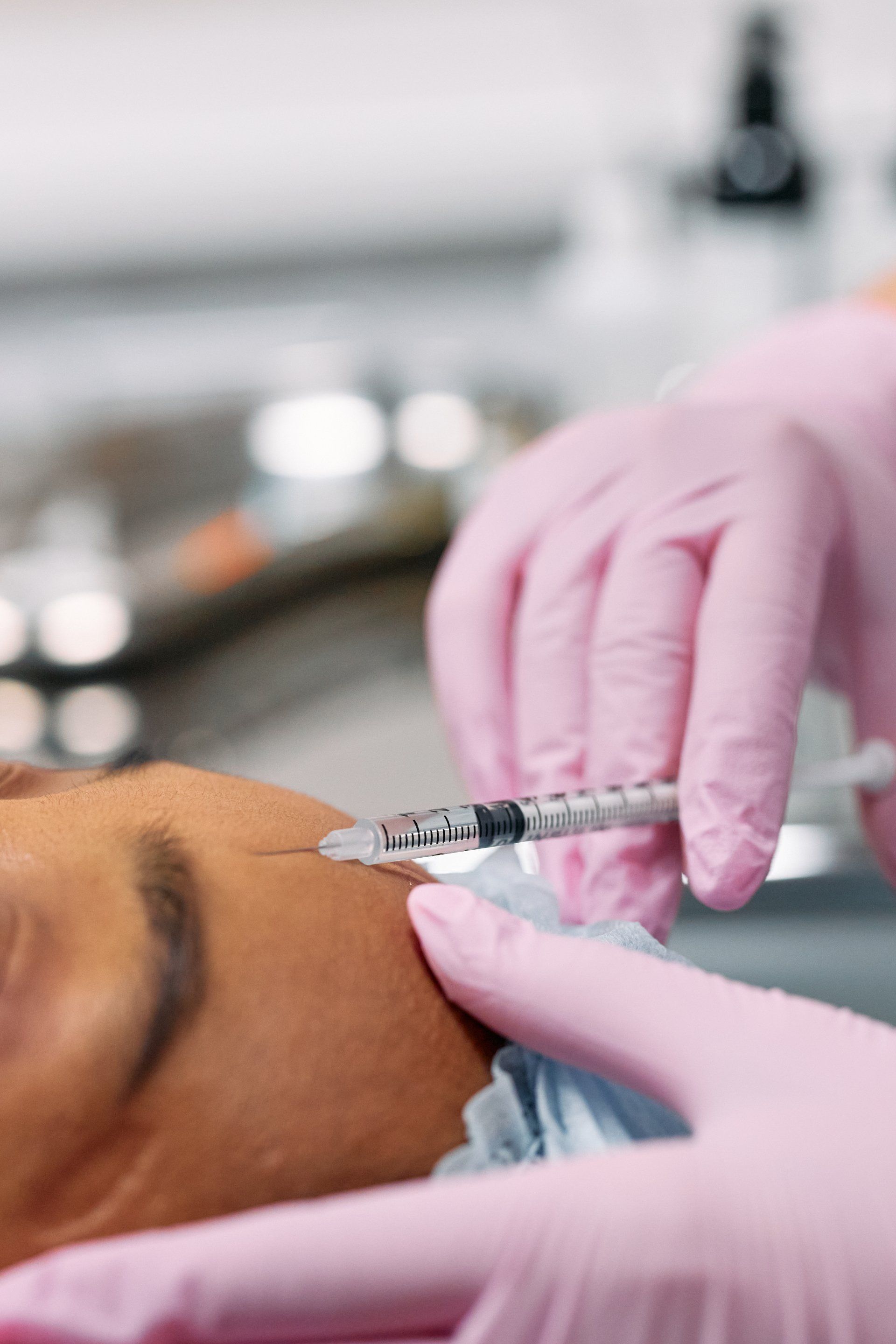
By Refine Cosmetic
•
March 11, 2024
Cosmetic injectables, such as Botox and dermal fillers, have become increasingly popular in the beauty industry. However, there are many myths and misconceptions surrounding the safety and effectiveness of these treatments, particularly when it comes to toxins in cosmetic injectables. Here are three myths busted about toxins in cosmetic injectables: Myth #1: Cosmetic injectables contain harmful toxins One of the most common misconceptions about cosmetic injectables is that they contain dangerous toxins that can harm the body. In reality, most cosmetic injectables, such as Botox and dermal fillers, are made from safe and FDA-approved ingredients. Botox, for example, is derived from a purified form of botulinum toxin, which has been proven to be safe and effective for reducing the appearance of wrinkles. Similarly, dermal fillers are typically made from hyaluronic acid, a natural substance found in the body. Myth #2: Cosmetic injectables are not regulated Another myth surrounding cosmetic injectables is that they are not regulated by the FDA or other health authorities. In fact, cosmetic injectables are subject to strict regulations and guidelines to ensure their safety and effectiveness. Before a cosmetic injectable can be approved for use, it must undergo rigorous testing to demonstrate its safety and efficacy. Additionally, healthcare providers who administer cosmetic injectables must be properly trained and licensed to ensure that they are using the products correctly. Myth #3: Cosmetic injectables are only for cosmetic purposes While cosmetic injectables are commonly used for aesthetic purposes, such as reducing wrinkles and restoring volume to the face, they can also have medical benefits. For example, Botox is approved for the treatment of certain medical conditions, such as chronic migraines, muscle spasms, and excessive sweating. Dermal fillers can also be used to treat facial asymmetry, scars, and other conditions. It’s important to consult with a qualified healthcare provider to determine the best treatment option for your individual needs. So, cosmetic injectables are safe, regulated, and can have both cosmetic and medical benefits. By debunking these myths about toxins in cosmetic injectables, individuals can make informed decisions about their beauty and skincare treatments. Remember to always consult with a qualified healthcare provider before undergoing any cosmetic injectable treatment. If you have any further questions around injectables or anti-wrinkle treatments, give Kelly a call.
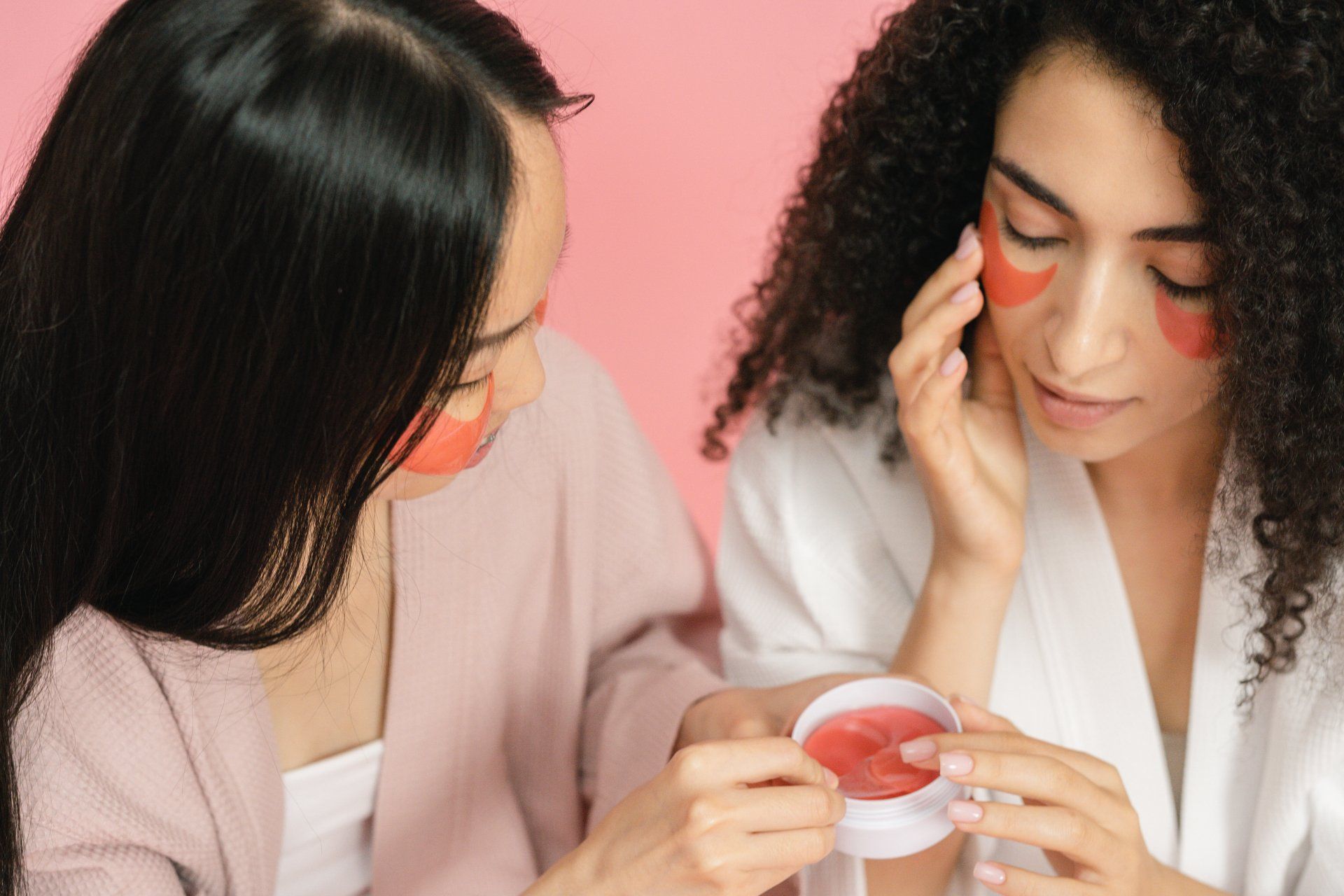
By Refine Cosmetic
•
March 11, 2024
As we age, our skin naturally loses its elasticity and firmness, leading to the formation of wrinkles. While it's inevitable that we will all eventually develop wrinkles, there are steps you can take to prevent premature aging and keep your skin looking youthful for longer. Here are 7 ways to prevent wrinkles before you turn 30: 1. Wear Sunscreen Daily: The sun's UV rays are one of the biggest culprits when it comes to causing premature aging. Make sure to wear a broad-spectrum sunscreen with at least SPF 30 every day, even on cloudy days. 2. Stay Hydrated: Keeping your skin hydrated is essential for maintaining its elasticity. Drink plenty of water throughout the day and use a moisturiser to keep your skin hydrated from the outside as well. 3. Eat a Healthy Diet: Eating a diet rich in fruits, vegetables, and antioxidants can help protect your skin from damage caused by free radicals. Foods high in antioxidants, such as berries, nuts, and green tea, can help prevent wrinkles. 4. Avoid Smoking: Smoking not only damages your lungs, but it can also accelerate the aging process of your skin. Smoking causes the breakdown of collagen and elastin, leading to the formation of wrinkles. 5. Get Enough Sleep: Lack of sleep can lead to a dull complexion and the formation of fine lines and wrinkles. Aim to get 7-9 hours of quality sleep each night to allow your skin to repair and rejuvenate. 6. Use Retinol: Retinol is a powerful ingredient that can help stimulate collagen production and prevent the formation of wrinkles. Incorporate a retinol-based product into your skincare routine to help keep your skin looking youthful. 7. Stay Active: Regular exercise can improve circulation and promote the delivery of nutrients to your skin cells, keeping them healthy and vibrant. Incorporate some form of physical activity into your daily routine to help prevent premature aging. By following these tips and taking care of your skin from a young age, you can help prevent wrinkles and maintain a youthful appearance well into your 30s and beyond. Remember, prevention is key when it comes to skincare, so start implementing these habits today to keep your skin looking its best for years to come.

By Refine Cosmetic
•
February 22, 2024
As we age, many of us begin to notice the effects of aging on our skin, especially when it comes to wrinkles. To combat these signs of aging, many people turn to anti-wrinkle cosmetic injectables, such as Botox or dermal fillers. However, there are several common misconceptions about these treatments that often deter people from trying them. Here are five common myths debunked: 1. Myth: Anti-wrinkle injectables will make you look frozen or unnatural. Reality: When administered by a skilled and experienced professional, anti-wrinkle injectables can provide a natural-looking result. The key is to find a provider who understands facial anatomy and can tailor the treatment to your specific needs. 2. Myth: Anti-wrinkle injectables are only for older people. Reality: Wrinkles can start to appear as early as your 20s, and anti-wrinkle injectables can be used as a preventative measure to slow down the aging process. It's never too early to start taking care of your skin. 3. Myth: Anti-wrinkle injectables are painful. Reality: While there may be some discomfort associated with the injections, most providers use a topical numbing cream or ice to help minimize any pain. The injections themselves are quick and relatively painless. 4. Myth: Anti-wrinkle injectables are only for women. Reality: More and more men are turning to anti-wrinkle injectables to help maintain a youthful appearance. Men can benefit from these treatments just as much as women. 5. Myth: Anti-wrinkle injectables are permanent. Reality: Most anti-wrinkle injectables are temporary and will require maintenance treatments to sustain the results. This can be seen as a positive, as it allows for adjustments to be made as your skin changes over time. Overall, anti-wrinkle injectables can be a safe and effective way to rejuvenate your skin and combat the signs of aging. It's important to do your research, consult with a qualified provider, and ask any questions you may have before undergoing treatment. By debunking these common misconceptions, you can feel more confident in exploring the benefits of anti-wrinkle cosmetic injectables for yourself.

By Refine Cosmetic
•
February 22, 2024
As we age, our skin starts to show signs of aging, such as fine lines and wrinkles. These can make us feel self-conscious and less confident in our appearance, especially on special occasions like Mother's Day. With Mother’s Day just around the corner, what better way to show your mum how much you appreciate her than by giving her the gift of anti-wrinkle treatments? While some may think that this gift is a bit unconventional, it can actually be a thoughtful and meaningful gesture that your mum will truly appreciate. As we age, our skin naturally starts to show signs of wear and tear, including wrinkles and fine lines. While these are a natural part of the aging process, they can also make us feel self-conscious and less confident in our appearance. Anti-wrinkle treatments can help to reduce the appearance of these wrinkles and give your mum a more youthful and rejuvenated look. Not only can anti-wrinkle treatments help to improve your mum’s physical appearance, but they can also boost her self-esteem and confidence. Feeling good about how we look can have a positive impact on our overall well-being and outlook on life. Be sure to schedule a consultation for your mum so that she can discuss her goals and concerns with us before undergoing any treatment. Additionally, consider any potential risks or side effects associated with the treatment, and discuss these with us as well.

By Refine Cosmatic
•
January 19, 2024
As we age, our skin starts to show signs of aging, such as fine lines and wrinkles. These can make us feel self-conscious and less confident in our appearance, especially on special occasions like Valentine's Day. Agitate: Imagine going on a romantic date with your loved one, but all you can think about is how tired and aged your skin looks. Your confidence takes a hit, and you can't fully enjoy the evening. Don't let wrinkles hold you back from feeling beautiful and radiant on this special day. Our anti-wrinkle treatments are designed to target those pesky lines and smooth out your skin, giving you a youthful, glowing complexion. Our highly skilled professionals use safe and effective techniques to rejuvenate your skin, so you can feel confident and look your best on Valentine's Day. Whether you want to reduce the appearance of crow's feet, forehead lines, or frown lines, we have the perfect treatment for you. Our experienced team will customise the treatment to address your specific concerns and leave you with natural-looking results. Don't let wrinkles dampen your Valentine's Day spirit. Treat yourself to our anti-wrinkle treatments and embrace the beautiful, youthful skin you deserve. Contact us now for more information and book your appointment to ensure you're date-night ready!

By Refine Cosmetic
•
January 15, 2024
In recent years, there has been a growing trend among men to seek anti-wrinkle injections as a way to combat the signs of aging. Traditionally, these types of cosmetic procedures were more popular among women, but times are changing, and men are now taking advantage of the benefits that anti-wrinkle injections can offer. So, is it common for men to get anti-wrinkle injections? The answer is yes, it is becoming increasingly common. Men are now realising that they too can benefit from these procedures and are more open to exploring options to enhance their appearance. There are several reasons why men are turning to anti-wrinkle injections. 1. Society's perception of male grooming has evolved, and there is now more acceptance and encouragement for men to take care of their appearance. As a result, men are becoming more conscious of their skin and are seeking ways to maintain a youthful and fresh look. 2. Men are recognising the advantages of anti-wrinkle injections in a competitive job market. In today's world, where appearance plays a significant role, men want to present themselves as youthful and energetic, giving them a competitive edge in their professional lives. 3. Men are also becoming more concerned about their overall health and well-being. They want to age gracefully and maintain a healthy lifestyle. Anti-wrinkle injections can help them achieve this by reducing the appearance of wrinkles and fine lines, giving them a boost of confidence and a more youthful appearance. It is important to note that when it comes to anti-wrinkle injections, the approach for men may differ slightly from that of women. Men tend to have different facial features and skin thickness, which means that the injections need to be administered with precision and expertise. Therefore, it is crucial for men to seek out experienced professionals who specialise in male aesthetics to ensure the best possible results. Whether it is for personal confidence, professional success, or overall well-being, men are now joining women in the pursuit of a youthful and rejuvenated look.

